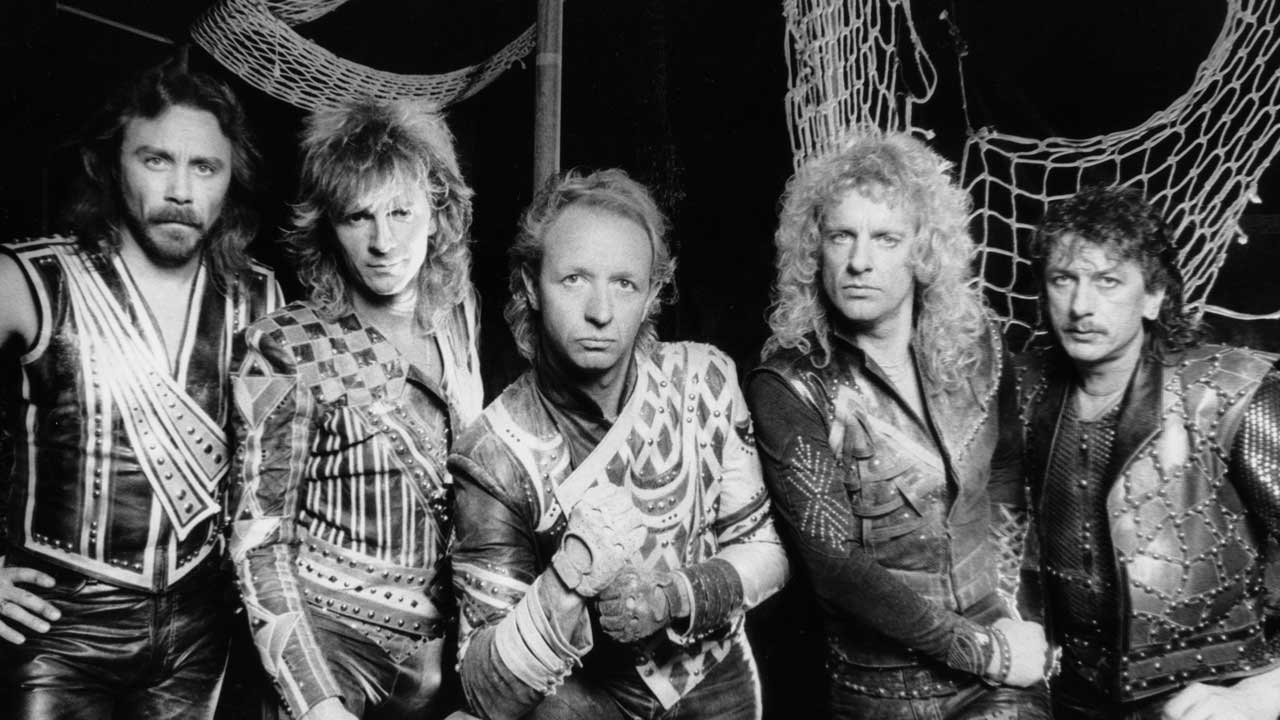“If somebody’s got an alcohol problem or a drug problem, there’s nothing you can do”: the epic life of Don Airey, the man who has worked with Ozzy Osbourne, Ritchie Blackmore and Gary Moore and lived to tell the tale
Ozzy, Richie Blackmore, Gary Moore - keyboard maestro Don Airey has worked with them all and has the stories to prove it
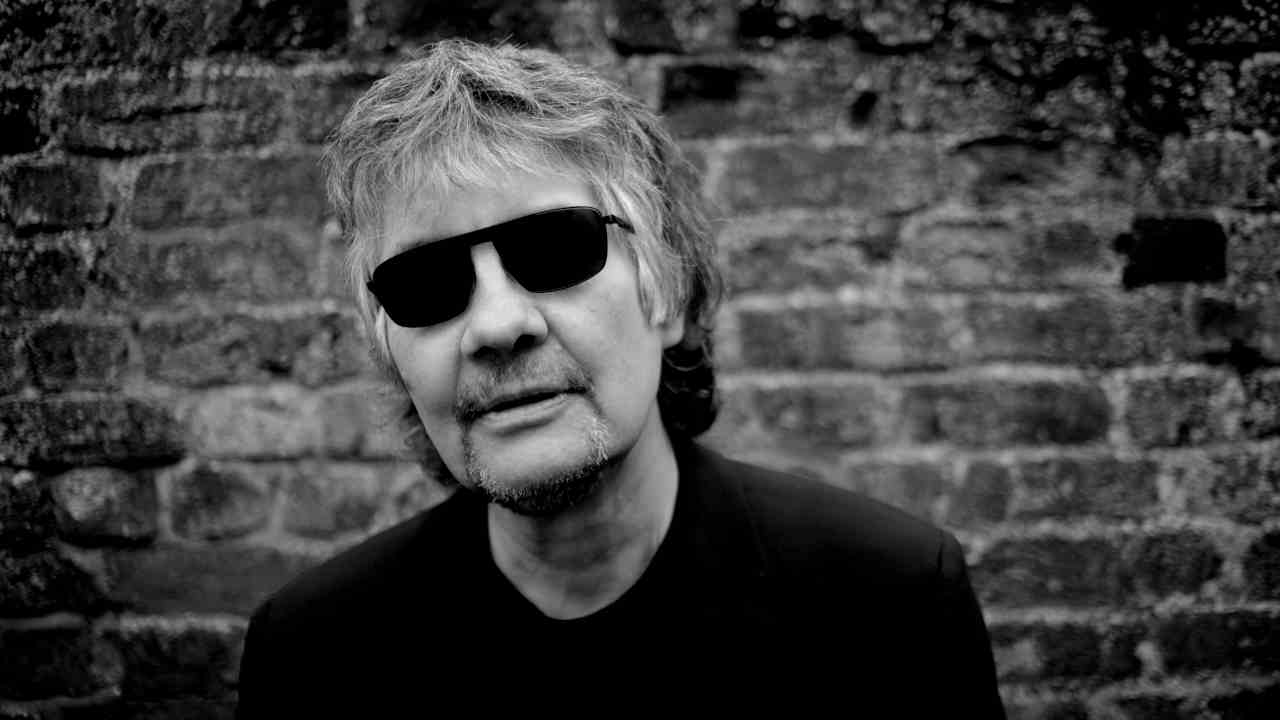
Don Airey has a theory about the great guitarists. “They’re insecure,” he says. “All of them. A lot of the best guitarists don’t know how they do what they do; it’s like it comes from another world, almost. When you’re a keyboard player you just read music and play it. That’s easy.”
This is typical Don Airey. You’d be hard-pushed to find a more self-effacing musician, especially one who has played keyboards with some of the greatest acts in rock history: Rainbow, Black Sabbath, Ozzy Osbourne, Deep Purple, Gary Moore, Whitesnake…
During his 50-year career, Airey has seen the best and worst rock’n’roll has to offer. He’s been there at the birth of countless now legendary songs and iconic albums; he has also witnessed the sort of devastating tragedy that no one should have to live through.
We’re sitting in the upstairs kitchen at Headline Music Studio on the outskirts of Cambridge, where Airey recorded his new solo album, One Of A Kind. The 69-year looks surprisingly healthy for a man who was hospitalised with pneumonia five weeks ago, having been taken ill at Los Angeles airport while he was waiting for his flight back to Britain.
This morning, his wife jokingly teased him that he would be talking to Classic Rock about his favourite subject: “Me, me, me, me, me.” Except that’s not Airey’s style. As befits a man who has spent most of his career just out of the spotlight (where he prefers to be), he’s more comfortable heaping praise on anyone else but himself. He’s rock royalty, although he’d be the last person to admit it. “It’s nice that people just appreciate you, that they think anything all,” he says. “I wouldn’t want to be a lead singer for anything. I’ve got a keyboard in front of me. I can’t think of anything better than that.”
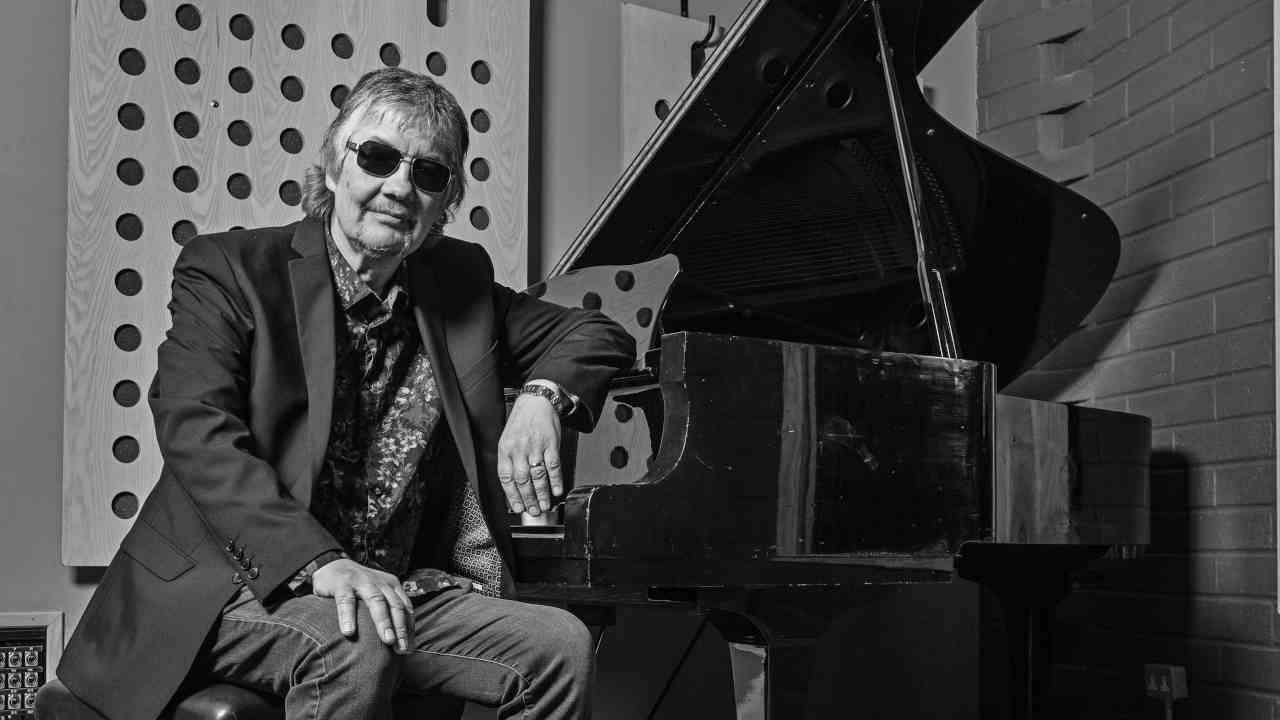
If you’re going to base your professional philosophy on an answerphone message, it might as well be that of Sir Tim Rice, multimillionaire lyricist behind musicals including Jesus Christ Superstar and Evita. “It says: ‘There’s no one here at the moment, but I can do it,’” says Airey, laughing. “That’s how I look at things too.”
Airey wanted to be in the music business even before the music business existed. He began playing the piano at three years old, latching on to theme tunes he heard on the radio. As a kid he fell in love with some of the great jazz players – pianist Bill Evans, Hammond organ legend Jimmy Smith – but soon got caught up in the growing rock’n’roll movement. His first band were The Atoms, who covered songs by The Animals and The Kinks. “My life changed,” he says. “Mates, girls, getting invited to football matches.”
Sign up below to get the latest from Classic Rock, plus exclusive special offers, direct to your inbox!
His dad, a World War II veteran who played piano in the pubs and clubs of their native Sunderland, was dubious about Don’s chosen career, especially the shady business side of it. Still, by the time Airey Sr saw his son play Newcastle City Hall with Rainbow in the early 80s, he’d come around to the idea.
“I said: “What did you think, dad?’ And he said: ‘That’s the loudest and most impressive thing I’ve experienced since El Alamein.’”
Airey spent a year studying piano at the Royal Manchester College Of Music, then two years playing in a band on cruise ships. It was a lucrative job – he returned with enough money to buy a house in Sunderland for cash. Instead he opted for London and the pursuit of his rock’n’roll dreams.
Airey was playing in some long-forgotten band on the club circuit when someone asked if he wanted to join a new group that Cozy Powell was putting together. The former Jeff Beck Group drummer had just bagged a solo hit single with the thunderous Dance With The Devil. “I said: ‘Yeah, sure.’ Cos I loved that song.”
The two became great friends. Airey talks fondly of Powell, who died in a car crash in 1998. “He was the best bloke I ever knew,” he says. “He always looked the part, he was straight in his dealings with you, he kept himself together all the time. He’s someone I really miss.”
The band, Cozy Powell’s Hammer, notched up three hit singles before the drummer left to form a new outfit, Strange Brew. Within months, Powell had joined Ritchie Blackmore’s latest band, Rainbow. Airey would follow him into Rainbow a few years later, but not before forging his second great musical friendship.
When Don Airey first met Gary Moore, the guitarist was playing with jazz-fusion band Colosseum II. After Hammer’s collapse, Airey hired out his keyboard to a friend who was working with Moore’s new group. When he went to the studio to pick up his equipment, he was greeted by Moore and Colosseum drummer and band leader Jon Hiseman.
“Yes? Who are you?” Hiseman asked suspiciously. When Airey replied that he was the person whose keyboards they were, Hiseman asked if he could play them. “I told him yes, he gave me this piece of music, and three hours later I was in the band.”
Airey was impressed by Hiseman, but he was even more impressed by the guitarist. “Gary was overflowing with ideas,” he says. “He was unstoppable. You put a guitar on him and he was off. The tension in him was amazing.”
It was the start of a friendship that would last until Moore’s death in 2011. Airey played on several of the guitarist’s albums from the late 70s to the mid-00s. Moore returned the favour, contributing to Airey’s debut solo album of 1988, K2. “There’s a track on it called Sea Of Dreams,” he says. “It’s got some of the greatest guitar playing I’ve ever heard by anyone. It was just extraordinary how gifted Gary was.”
Gifted but prickly. And troubled. Airey puts this down partly to a surplus of talent.
“The thing about Gary was that he was that brilliant when he was seventeen. He never got any better, that I noticed. But he was desperate to make it. And the blues was finally the funnel that allowed him to do that. But he and I always got on.”
Airey stayed in touch with Moore down the years. In early 2011 he was in on holiday in France with when he realised he hadn’t spoken to his friend Gary in a while. He told his wife he’d call him when they got back. Minutes later he received a text from a mutual friend informing him that Moore had died. “I was absolutely devastated. It was just awful,” he says quietly.
Airey has a feeling that Moore’s last few years weren’t happy ones. “I think he was lonely. But if somebody’s got an alcohol problem or a drug problem, there’s nothing you can do. They’ve got to do it themselves. That’s what happened with Ozzy. He just sat down one day and went: ‘This stops now.’”
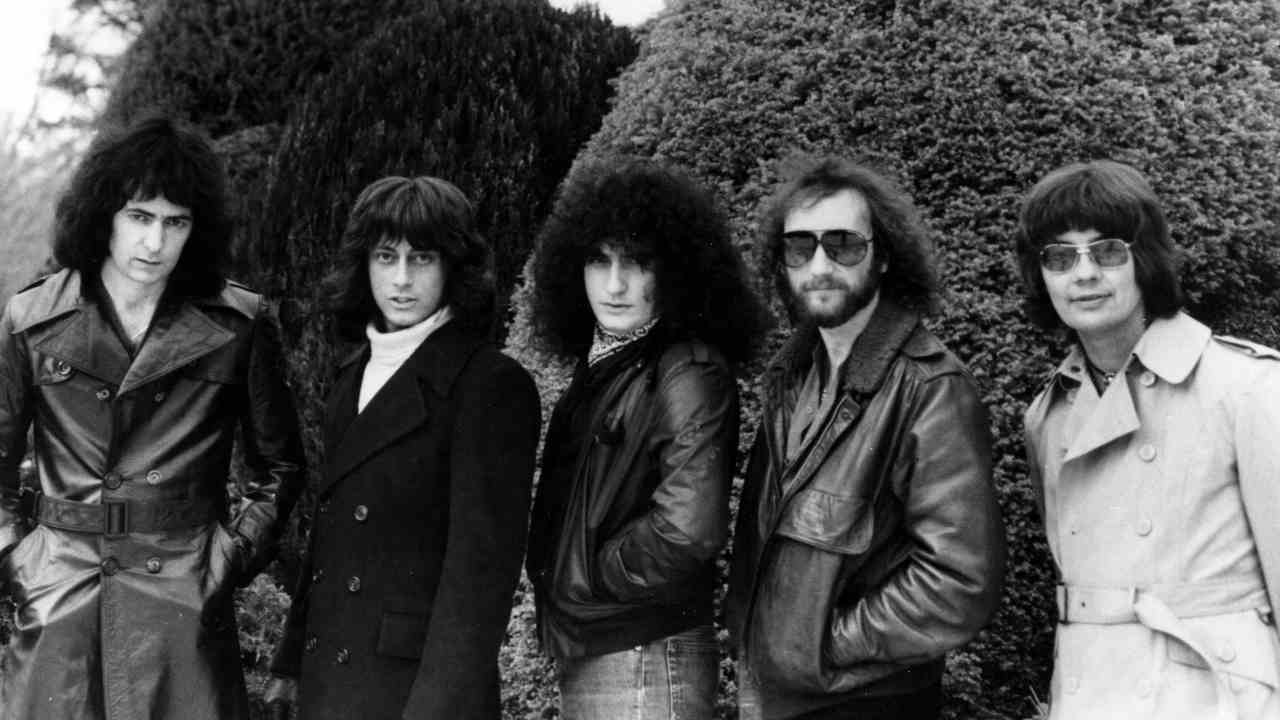
Like everybody he’s ever worked with, Airey speaks very highly of Ozzy Osbourne. This isn’t a cynical ploy on his part to ensure the work keeps rolling in, he’s just the kind of person who genuinely likes other people.
Airey entered Ozzy’s orbit in the late 1970s. To make ends meet he’d been playing on sessions. He got a call to ask if he fancied playing on Black Sabbath’s new album, Never Say Die!. Cautiously, he agreed.
“They were supposed to be really wild,” he says. “Tony Iommi had a reputation for hitting people. So I got quite a shock when they turned out to be the nicest people I ever worked with. The first thing Ozzy did was make me a cup of tea.”
Airey thinks they might have wanted him to join the band full-time, but his decision was made for him when he got a call from Cozy Powell. Rainbow were looking for a keyboard player, and Powell told his old friend he should get on a plane and go for the job. It was not a suggestion. “He said: ‘No arguments. There’s a ticket for you to New York.’”
When Airey arrived in America he was taken straight to meet Ritchie Blackmore. There was a clavinet in the room. “Ritchie walked in and said: ‘Do you read music?’ And he put this piece of Bach in front of me – which I pretended not to know but I actually did. I played it, and he was impressed. And we were off.”
Of all the difficult bastards Don Airey has ever worked with, you’d think that Blackmore was the most difficult bastard of all.
“No, he’s very easy to work with, Ritchie,” he says. “You’ve just got to be ready for whatever voodoo he’s going to conjure up on the guitar. If people are difficult to deal with, it’s because they’re looking for the next step musically. It’s your job to try and be there for them to make it happen, and maybe contribute a little on the side.”
Rainbow were going through a period of turmoil. The band’s original singer, Ronnie James Dio, had recently left. For a while it was just Blackmore, Powell and Airey, writing what would be 1979’s Down To Earth album at a chateau in the south of France.
“I remember it was three in the morning and Ritchie going: ‘We’re a bit short’, and he started playing Danger Zone. It was a full moon, there was mist in the valley, and this riff was coming back from the other side of the mountain.”
Whatever magic was there in the valley that night fed into the album. The singles Since You’ve Been Gone and All Night Long briefly turned Rainbow into unlikely pop stars. “The shows were amazing too,” says Airey. “They’d start with that amazing keyboard intro, then in would come Ritchie and Cozy and Roger Glover. Game, set and match.”
But the line-up that made Down To Earth wasn’t built to last. Powell was out after one too many clashes with Blackmore. Singer Graham Bonnett departed soon after.
“I’ll never know why Cozy left,” says Airey. “I don’t think even he knew. I got on my knees and said: ‘I’ll shine your shoes every night if you stay.’”
Airey himself lasted one more album with Rainbow, 1981’s Difficult To Cure. He found himself becoming more distant from Blackmore. “You don’t speak for a few days on tour, then it becomes a week, then two weeks, three weeks. Then I knew it was time to go.” He looks thoughtful. “Bands are funny things.”
Airey insists he was the only person ever to quit Rainbow of his own volition. “Ritchie never asked me to stay. He’d never do that,” he says. “But I subsequently heard that he was put out that somebody had left rather than been fired.”
Airey being Airey, the two of them are still friendly. He went to see Rainbow at their comeback gig in Birmingham. “We sat down backstage and talked about old times. I like Ritchie a lot. And I very much enjoyed the show. They’ve got a great keyboard player. That’s always a bonus.”
Airey didn’t leave Rainbow with his eyes closed. Between Down To Earth and Difficult To Cure he’d played on the debut album from Ozzy Osbourne’s new band, Blizzard Of Ozz, as a favour to Ozzy.
“Ozzy was trying to get something going again after Sabbath,” he says. “But he didn’t have a record deal, didn’t really have proper management. Then I heard the tracks. ‘Oh God, Ozzy, this is great, man.’ [Uncanny Ozzy impression] ‘Do you think so?’ ‘Yeah, Ozzy, they’re brilliant.’”
Airey knew Ozzy and his bassist, Bob Daisley, but he’d never met hot-shot guitarist Randy Rhoads before. “Randy was a lovely guy,” he says. “Very open, a wonderful musician. All he wanted to know was what Gary Moore was like.”
Airey’s most memorable contribution to the album was the gothic keyboards that usher in the occult anthem Mr Crowley. “I just cleared them out of the studio and said: ‘Come back in half an hour.’ Ozzy came back, heard it, and said: ‘You just plugged into my head, man.’”
Airey walked out of Rainbow in 1981 straight into Ozzy’s band. Life on the road was crazy, although not as crazy as you might think. “Ozzy liked a drink on the days off, but on the day of a gig he didn’t touch a drop. And he was funny with it.
“It was such a great band. And professional. In the four years I was on the road with him we never missed a show. Well, we did. For a big reason.”
His voice quietens at this. He’s talking about the death of Randy Rhoads in a plane crash on March 19, 1982, en route to a gig in Orlando. The band’s bus driver, Andrew Aycock, was a qualified pilot and had offered to take Rhoads and make-up artist Rachel Youngblood in a single-engine plane. Aycock flew low over the bus twice. The third time, the plane’s wing clipped the vehicle. It spun out of control and crashed. Aycock, Youngblood and Rhoads were killed instantly.
Airey saw the whole thing unfold. It’s still too painful for him to talk about the tragic incident itself. “It was the most awful thing that ever happened, to witness something like that. It had a profound effect on me.”
Somehow the band kept going. Airey says he doesn’t know how they managed it. He played on Bark At The Moon, Ozzy’s third solo album and the first one they made after Rhoads’ death. “It was hard, because he wasn’t there. It was the elephant in the room. The last time I saw Ozzy, I said to him: ‘I can still hear him. I can still hear the sound of his guitar in my head. It’s still there.’” He sighs.“He made such an impression, oh my God.”
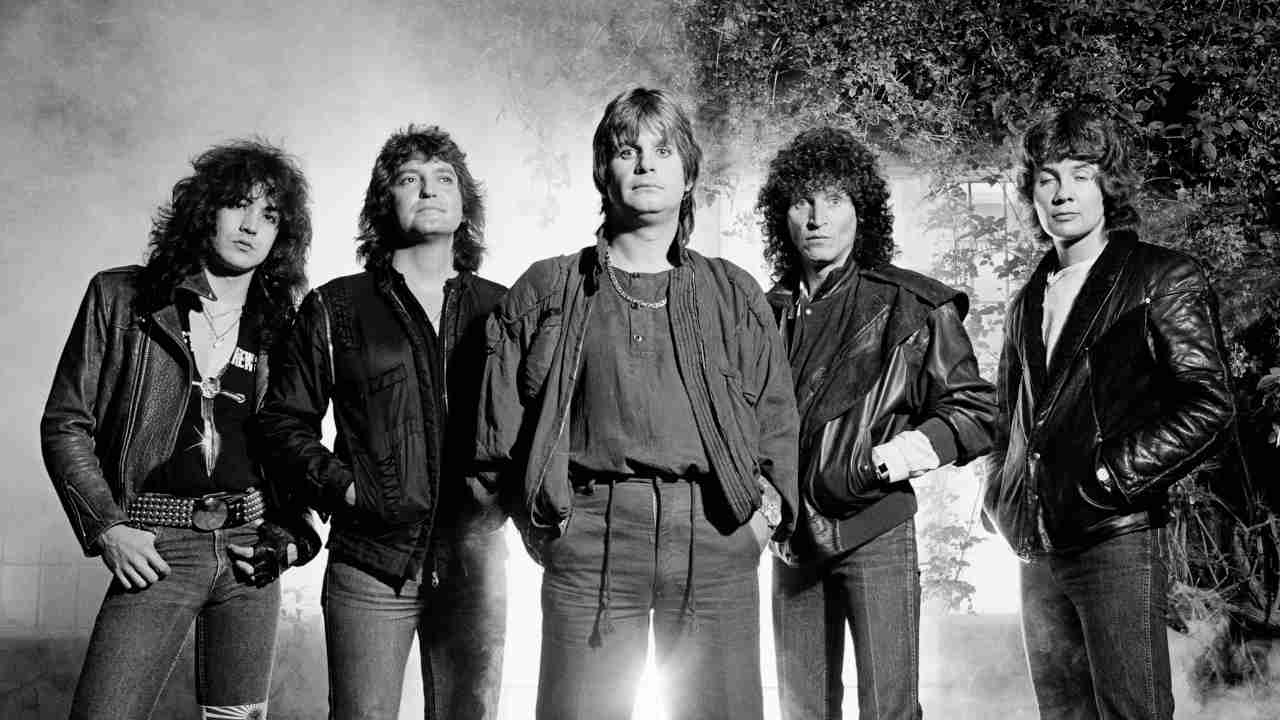
The death of Randy Rhoads didn’t stop Airey in his tracks, but it did contribute to him slowing down in the 1980s. As did the fact he’d been on the road for 15 years and wanted to watch his children growing.
He kept his hand in, though. He’d parachute into sessions for such as Fastway, Jethro Tull and his old mate Gary Moore, work his magic and then disappear again. In 1985 he flew to Los Angeles at the invitation of David Coverdale to play on the album that became Whitesnake’s MTV-era blockbuster 1987.
“It was a band in disarray, heads down,” he says of Whitesnake. “David was four million dollars in debt, didn’t know whether he was coming or going.” Airey told Coverdale to stick with it, that the new songs were fantastic. One song in particular stuck in his mind: the epic Still Of The Night.
“There was a big section missing in the middle,” he recalls. “I said: ‘So what happens here?’ [Whitesnake guitarist] John Sykes said: ‘You do.’” Still Of The Night, with its grandiose middle section, became the first single from the album and set Whitesnake on the road to megastardom in the US.
But Airey remained reluctant to become enmeshed in a band situation again. He was content to play for other people and release the odd album of his own. All that finally changed in March 2002 when he joined the band he seemed born to play with: Deep Purple.
When Purple’s original keyboard player Jon Lord was forced to pull out of tour just a few days before it was due to start, due to a debilitating knee problem, bassist Roger Glover called Airey to ask what he was doing for the next few days. “And this was the day before the tour,” Airey recalls. “But I said still said yes. It was Deep Purple, after all.”
The band had wanted him to deputise for just two or three shows, but Lord never returned.
“There was no thought in my head that I was replacing Jon,” he says. “He came back for two or three days, but his heart wasn’t in it.”
Sixteen years on from his first rehearsal with Purple, Airey is still a part of Purple Mark VIII. It’s the longest unbroken line-up the band have ever had, and the longest time Airey has spent in any band by at least a decade. He got to know Lord – who would make the occasional guest appearance with Purple – before his death in 2012. Airey laughs and says he was really checking that everything was still working. Lord seemed to be happy. Well, mostly.
“Jon didn’t like me having my head raised when I played the Hammond. He always used to say: ‘You’ve got to lower your head when you play it. Bow to the Hammond!’”
And what about Ritchie Blackmore? Does he ever compare notes with the rest of the band about the guitarist?
“Nothing bad is ever said about Ritchie,” he says, smiling. “I understand that it wasn’t too good in the band before he left, and I think he expected the band to fold without him. But he’s gone on and carved himself a new career. And Purple are still Purple.”
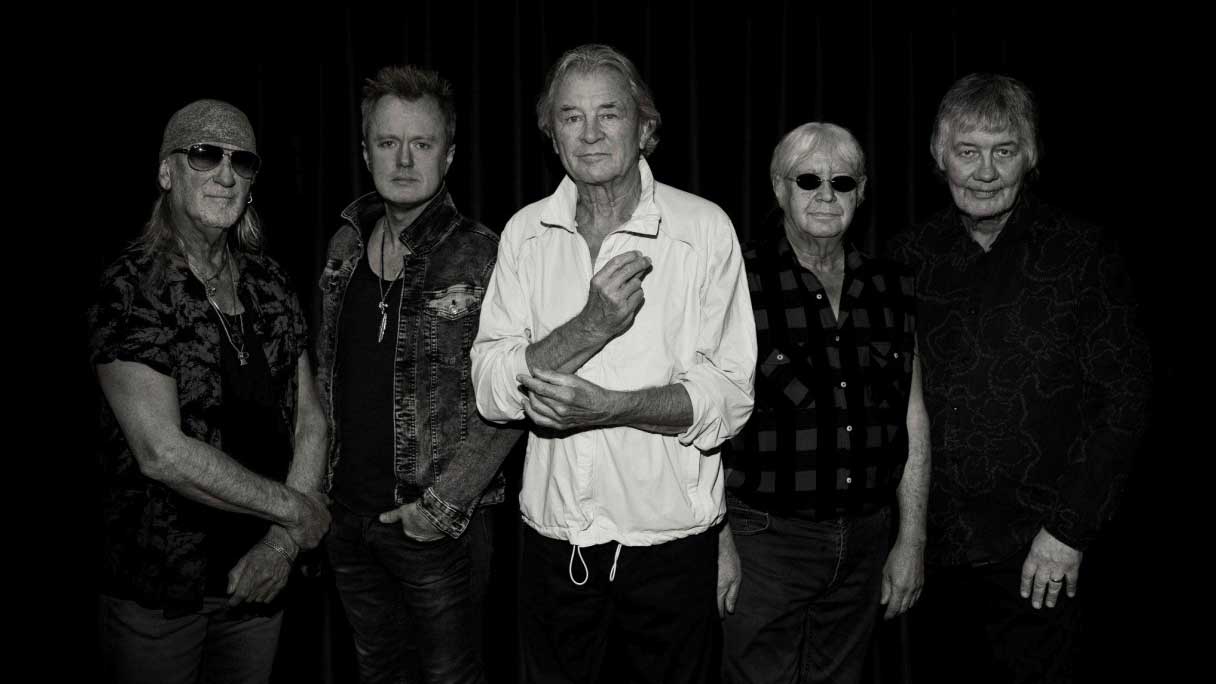
And Don Airey is still Don Airey. He jokes about how his new solo album will send his ego spinning out of control. “It’s nice being in charge. Everybody laughs at your jokes.”
When we talk, he’s due to take his band on the road for a few shows in support of One Of A Kind. But his recent bout of pneumonia has made him re-evaluate things. “There comes a time where you think: ‘I should spend more time at home. You’ve got grandchildren, you want to be with them.’”
Of course, a lot the people he knew don’t get the chance to spend time with the grandkids: Randy Rhoads, Cozy Powell, Gary Moore, Jon Lord. But then there are the people he’s still friends with: Ozzy, Ritchie, all those other musicians whose songs and records his keyboards have enriched.
Airey has characteristically few regrets about his career. His biggest is that the Rainbow line-up that made Down To Earth didn’t stay together longer. “Somebody should have intervened to keep that band together, because it was great,” he says.
One thing he certainly wouldn’t want is to be anyone other than Don Airey, keyboard player extraordinaire and one-man support system. If he’d played things differently, maybe he could have been richer or more famous. But then that’s not his style.
“It’s just par for the course. If you get bitter about it and think: ‘Oh, the money I deserve…’ it doesn’t do you any good,” he says. “You swallow it and keep thinking about the music.”
Originally published in Classic Rock issue 249
Dave Everley has been writing about and occasionally humming along to music since the early 90s. During that time, he has been Deputy Editor on Kerrang! and Classic Rock, Associate Editor on Q magazine and staff writer/tea boy on Raw, not necessarily in that order. He has written for Metal Hammer, Louder, Prog, the Observer, Select, Mojo, the Evening Standard and the totally legendary Ultrakill. He is still waiting for Billy Gibbons to send him a bottle of hot sauce he was promised several years ago.

